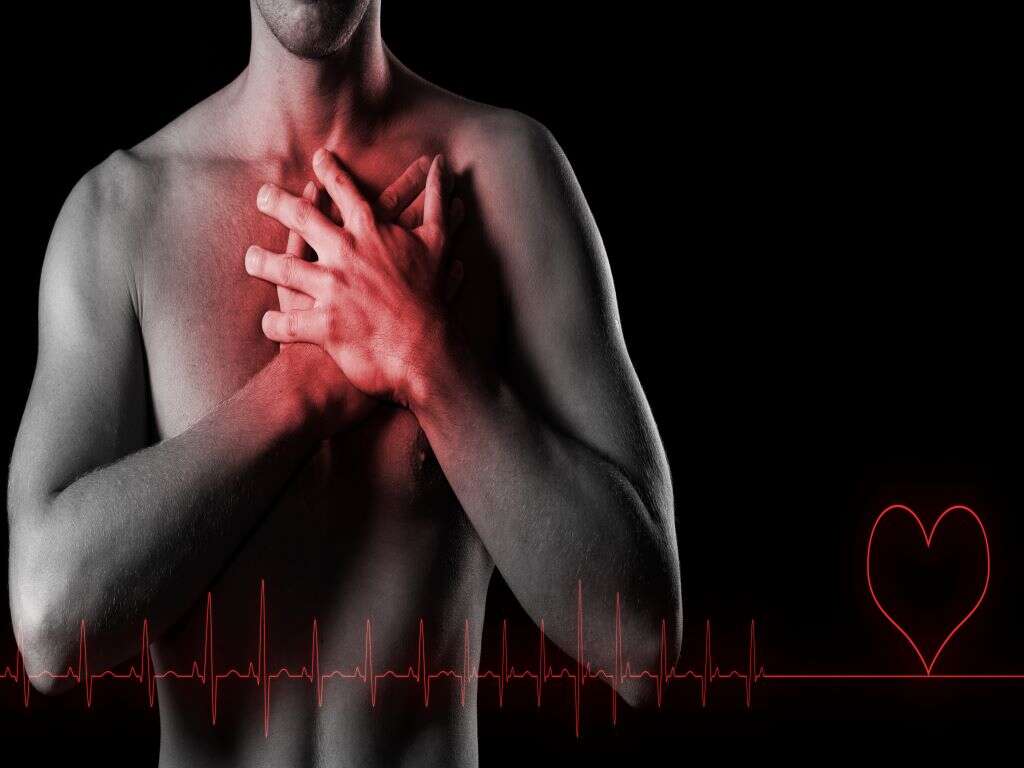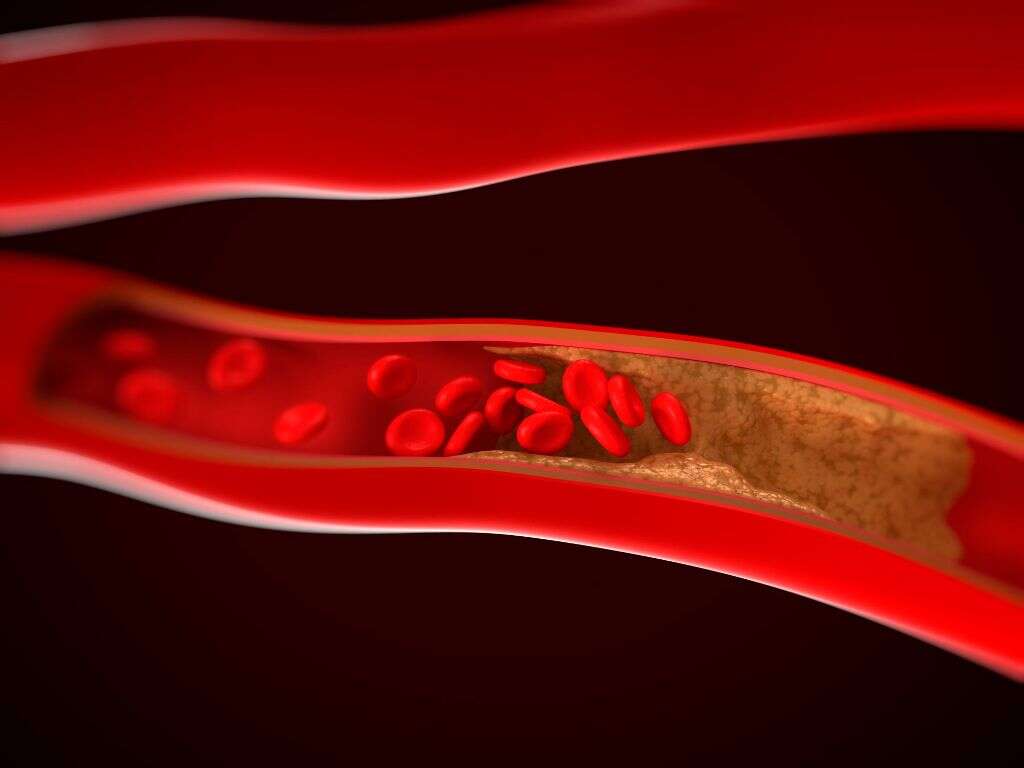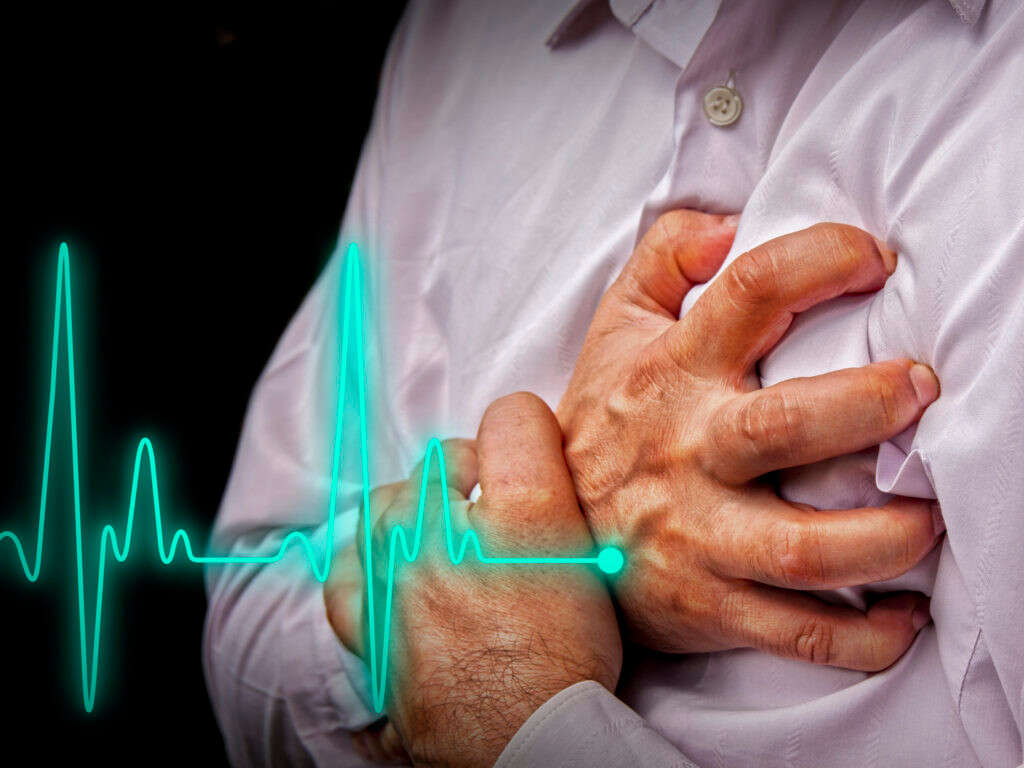10 Ischemia Symptoms
 Article Sources
Article Sources
- 1. 'Myocardial Ischemia.' Mayo Clinic, www.mayoclinic.org/diseases-conditions/myocardial-ischemia/symptoms-causes/syc-20375417
- 2. Mieres JH; Heller GV; Hendel RC; Gulati M; Boden WE; Katten D; Shaw LJ; 'Signs and Symptoms of Suspected Myocardial Ischemia in Women: Results from the What Is the Optimal Method for Ischemia Evaluation in Women? Trial.' Journal of Women's Health (2002), U.S. National Library of Medicine, pubmed.ncbi.nlm.nih.gov/21740192
- 3. Bakhshi, Mahin, et al. 'Frequency of Craniofacial Pain in Patients with Ischemic Heart Disease.' Journal of Clinical and Experimental Dentistry, Medicina Oral S.L., 1 Jan. 2017, www.ncbi.nlm.nih.gov/pmc/articles/PMC5268115
Ischemia, also called myocardial ischemia, occurs when the blood flow to the heart is reduced and the heart muscle doesn't receive enough oxygen.1‘Myocardial Ischemia.’ Mayo Clinic, www.mayoclinic.org/diseases-conditions/myocardial-ischemia/symptoms-causes/syc-20375417 Ischemia is serious and should be addressed right away. Patients with ischemia should consult with their cardiac physicians for detailed instructions on how to mitigate the condition.
Ischemia of the heart is often caused by atherosclerosis or blood clots. Many of its symptoms seriously interfere with patients' health and well-being. The condition should be taken seriously, and those who suspect they have it should speak with a doctor. Complications of myocardial ischemia include heart attacks, heart failure and abnormal heart rhythm.
Chest Pain
Chest pain is one of the most recognizable symptoms of ischemia.2Mieres JH; Heller GV; Hendel RC; Gulati M; Boden WE; Katten D; Shaw LJ; ‘Signs and Symptoms of Suspected Myocardial Ischemia in Women: Results from the What Is the Optimal Method for Ischemia Evaluation in Women? Trial.’ Journal of Women’s Health (2002), U.S. National Library of Medicine, pubmed.ncbi.nlm.nih.gov/21740192 Patients sometimes report pain in their upper chest, usually on the left side. The intensity of the pain can vary, and it's more frequently reported by female patients.
Some people mistake this symptom for something more innocuous, such as heartburn, which makes it tricky to identify. Pain can be an important indicator of the condition, and patients should note the frequency, intensity and duration of chest pains. People who experience intense chest pain for more than a few minutes along with shortness of breath, dizziness or palpitations should seek medical attention right away.

Nausea
Nausea is common among many illnesses, and it's also a symptom of heart problems, such as ischemia. While stomach problems might come to mind when a person feels nauseous, it can also be a sign of a more troubling problem.
Nausea might be a distracting symptom because it can be caused by so many illnesses. That's why it's important to speak to a doctor when experiencing nausea in combination with other ischemia symptoms.

Vomiting
Like nausea, vomiting can be a sign of a serious heart problem. It's easy to focus on what may appear to be a stomach problem when a person is vomiting, so it's important to pay attention to other symptoms at the same time.
Vomiting should be a sign that immediate medical attention may be necessary. Even if a doctor determines that the root cause isn't heart-related, it's important to check with an expert to find out.

Jaw and Neck Pain
While many patients experience chest pain with ischemia, some also feel pain in their jaw and neck.3Bakhshi, Mahin, et al. ‘Frequency of Craniofacial Pain in Patients with Ischemic Heart Disease.’ Journal of Clinical and Experimental Dentistry, Medicina Oral S.L., 1 Jan. 2017, www.ncbi.nlm.nih.gov/pmc/articles/PMC5268115 The pain is typically around the back and side of the neck, and head pain is also common. Pain on the left side is more common than on the right.
It's easy to dismiss neck pain as a muscle problem, but patients should pay special attention to pain on the left side and back of the neck.

Sweating
Many patients with ischemia experience cold sweats or sweating, even when they don't feel overheated. Of course, sweating is also possible in warm environments, but it's more distinctive in situations where sweating is less expected.
Sweating is another symptom that should be considered in combination with others. While excessive sweating alone isn't a definite sign of ischemia, it can be an important clue that a physician may use when diagnosing the condition.

Rapid Heartbeat
Heart problems can cause a patient to notice changes in their heart rate. If the heart rate increases suddenly, despite low activity and steady emotions, it could be an important sign of ischemia.
Patients should try to get a rough count of their heart rate and speak with a medical professional about alarming numbers. Having a record of heart rate fluctuations can make it easier for doctors in emergency situations when an issue must be addressed quickly.

Shortness of Breath
Shortness of breath or difficulty breathing should be an alarming symptom, regardless of the cause. Unless the patient is exercising, difficulty drawing breath can be a sign that something is seriously wrong.
If a patient also has other ischemia symptoms, they should see a doctor right away. Physicians have the experience and equipment necessary to determine whether ischemia is the cause of shortness of breath and other symptoms a patient may be experiencing.

Fatigue or Tiredness
A patient with ischemia may experience a sudden onset of tiredness. This can be difficult to manage, as it may make it difficult to move the patient to see a doctor. However, that makes it even more important to pay close attention and determine whether going to a hospital is necessary.
Patients should take note of their energy levels if they're concerned about ischemia. In emergency situations, those notes can be a good diagnostic tool for physicians.

Shoulder or Arm Pain
Along with neck and chest pain, patients with ischemia can feel pain in their shoulder, sometimes shooting down into the arm. This pain commonly occurs on the left side. While neck and chest pain are fairly common, shoulder and arm pain can be more distinctive symptoms.
Because this symptom is so distinctive, patients should mention it when seeing a doctor. It can narrow down the possibilities and bring the physician to a diagnosis of ischemia more quickly.

Irregular Heartbeat
Patients who suspect a heart problem, such as ischemia, should pay close attention to their heart rate. In addition to a rapid heart rate, ischemia can cause irregular heartbeats. Patients should note the rhythm of their heartbeat and check if it's steady.
An irregular heartbeat can signal a number of problems, and many are very serious. Patients who find they have an irregular heartbeat should see a cardiac specialist immediately for more information about how to manage their specific situation.











